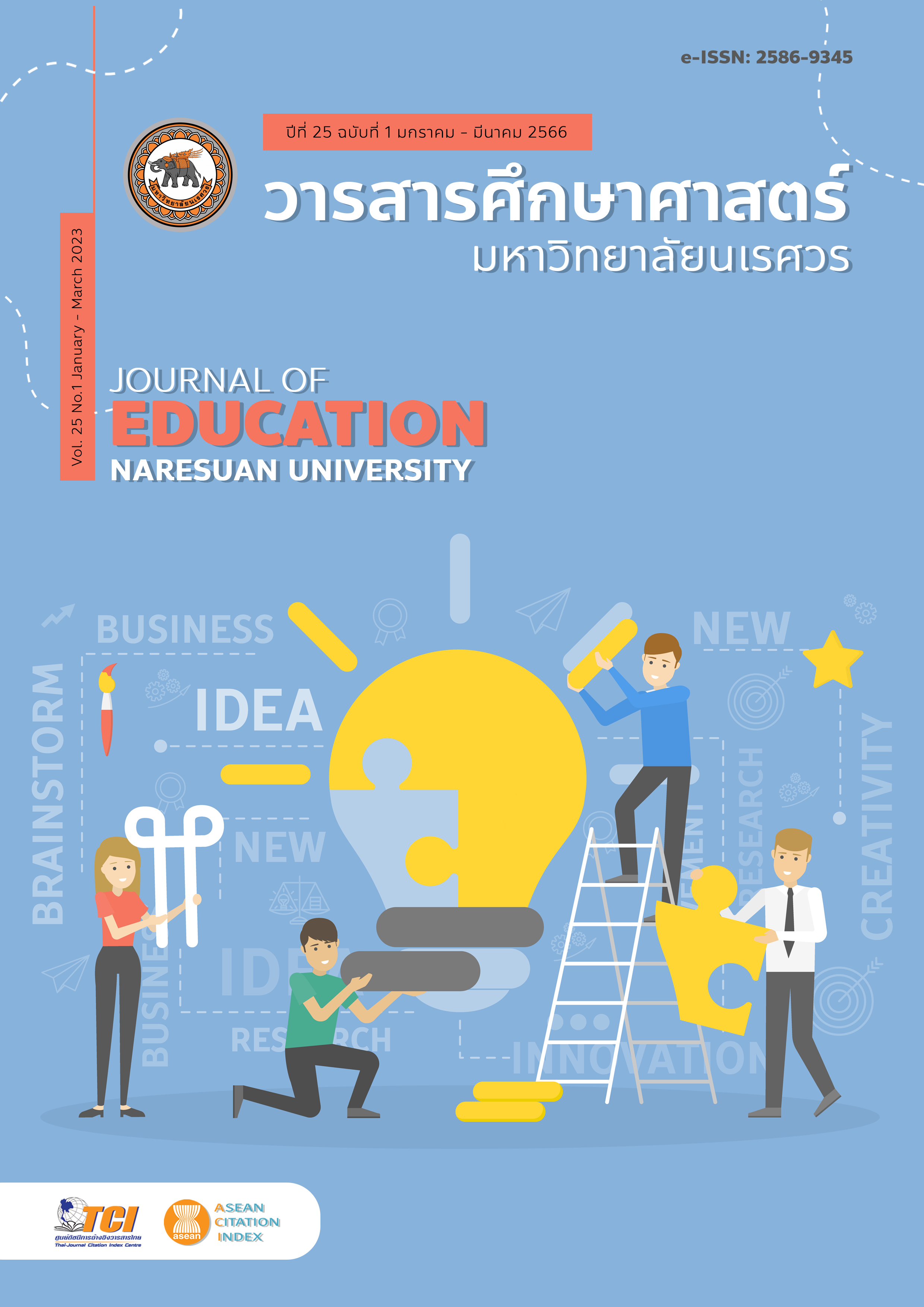DEVELOPMENT OF SYSTEMATIC THINKING MODEL TO ENHANCE CREATIVE PROBLEM SOLVING SKILL FOR STUDENTS IN EARLY CHILDHOOD EDUCATION PROGRAM การพัฒนารูปแบบการคิดเชิงระบบเพื่อส่งเสริมทักษะการแก้ปัญหาเชิงสร้างสรรค์ ของนักศึกษาสาขาวิชาการศึกษาปฐมวัย
Main Article Content
Abstract
The purposes of this research and development were to: 1) develop and determine the efficiency of systematic thinking model to enhance creative problem solving skill, 2) evaluate the effectiveness of systematic thinking model, and 3) disseminate the systematic thinking model. Methodology were to 1) analysis, 2) design and development, 3) implementation, and 4) evaluation and dissemination. The samples comprised 16 of third year students in early childhood education of Suan Dusit University, Suphanburi Campus. Research instruments consisted of systematic thinking model, handbook for the model, lesson plans, and creative problem solving assessment form. The data were analyzed by mean, standard deviation, a dependent t-test. The results were as follows; 1) the systematic thinking model called “FFDCDR” consisted of eight elements. There were 1) principles; 2) objectives; 3) the learning process which had six steps, namely Facing the Problems: F, Finding Information: F, Developing Thinking: D, Creating Problem Solving Plan: C, Discussing and Concluding: D, and Reflecting Thinking: R; 4) The assessments and evaluations; 5) teacher roles; 6) students role; 7) learning support; and 8) the important conditions for using the FFDCDR Model successfully. 2) The effectiveness was after using FFDCDR Model, the creative problem solving skill of students was higher than before receiving the instruction at the level of .05 significance. And 3) the dissemination was after using FFDCDR Model, the creative problem solving skill of students was higher than before receiving the instruction at the level of .05 significance.
Article Details

This work is licensed under a Creative Commons Attribution-NonCommercial-NoDerivatives 4.0 International License.
The owner of the article does not copy or violate any of its copyright. If any copyright infringement occurs or prosecution, in any case, the Editorial Board is not involved in all the rights to the owner of the article to be performed.
References
Anderson, V., & Johnson, L. (1997). System thinking basics: From concepts to causal loops. USA: Pegasus Communications.
Beyer, B. K. (1987). Practical strategies for the teaching of thinking. USA: Allyn and Bacon.
Borich, G. D. (2004). Effective teaching methods. New Jersey: Pearson Education.
Campbell, D. T., & Stanley, J. C. (1963). Experimental and quasi-experimental design for research. USA: The American Educational Research Association.
Chauhan, S. S. (1983). Innovations in teaching-learning process. India: Sanjay Printers.
Chatchainanon, J. (2014). The development of instructional model to enhance systematic thinking skills of public health students (Doctoral dissertation). Nakhon Pathom: Silpakorn University. [in Thai]
Creswell, J. W., & Plano Clark, V. L. (2007). Designing and conducting mixed methods research. California: Sage Publication.
Faculty of Education. (2019). The need for self-improvement of early childhood students to professional teacher (Research report). Suphan Buri: Suan Dusit University, Suphanburi Campus. [in Thai]
Fisher, R. (1992). Teaching children to think. Great Britain: T. J. Print.
Freiberg, J. H., & Driscoll, A. (2005). Universal teaching strategies (4th ed.). Boston USA: Allyn and Bacon.
Joyce, B., Weil, M., & Colhoun, E. (2009). Models of teaching. Boston, USA: Pearson Education.
Khemmani, T. (2017). Science of Teaching: The Knowledge for efficient learning management (21st ed.). Bangkok: Chulalongkorn University Press. [in Thai]
Ministry of Education. (2019). Bachelor's degree qualifications in faculty of education (4 years). Retrieved January 30, 2020, from http://www.eqd.cmu.ac.th/Curr/tqf%201.html [in Thai]
Naiyaphat, O. (2008). Research design: Quantitative, qualitative and mix method. Bangkok: Chulalongkorn University. [in Thai]
Office of the National Economic and Social Development Board. (2016). The twelfth national economic and social development plan (2017-2021). Retrieved January 15, 2019, from http://www.nesdb.go.th [in Thai]
Partnership for 21st Century Skills. (2009). Twenty-first century student outcomes. Retrieved September 3, 2019, from http://www.21stcenturyskills.org/route21/index
Ruengphattaranon, A. (2019). Teaching in 21st century of faculty of education (Research report). Suphan Buri: Suan Dusit University, Suphanburi Campus. [in Thai]
Walter, D., Carey, L., & Carey, J. O. (2005). The systematic design of instruction (6th ed.). Boston: Allyn and Bacon.


